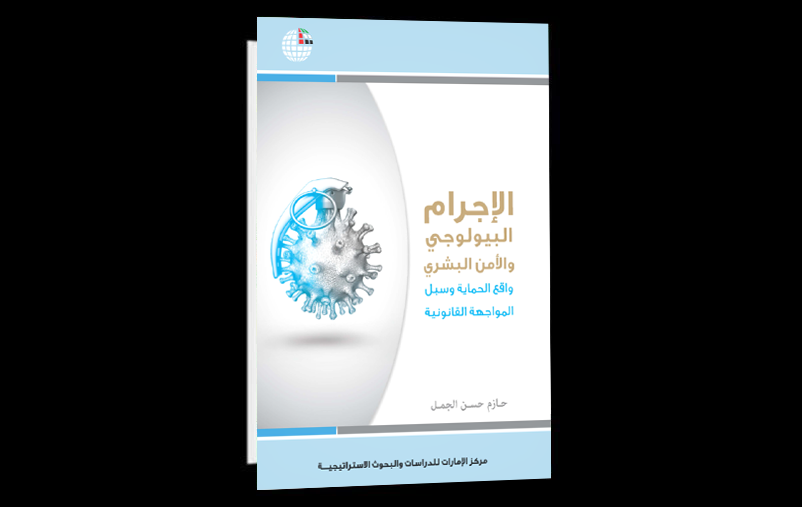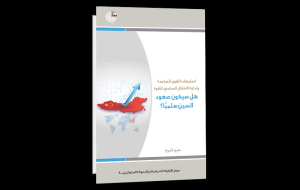Biological crime uses biological or genetic technology to alter the biological characteristics of organisms such as bacteria, viruses, microbes, etc., increasing their threat, and spreading or exploiting them in gruesome acts, with catastrophic effects on human beings, the biological environment and the biosphere. Thus, biological crimes threaten human security and survival, and undermine the essential elements for human development.
Legislative policy, both internationally and nationally, seeks to address the phenomenon of biological crime. There are multiple ways and means of prevention, which aim to regulate biological activities, counter any misuses of this technology, and enforce constant control and oversight by official authorities in the country.
Incidents have demonstrated that many legal systems fail to confront biological attacks or reduce their negative repercussions on human security. Despite frequent international warnings, legal rules, and international treaties, as well as conventions and agreements prohibiting biological attacks, there are concerns that they may spread and trigger major humanitarian atrocities, since it is difficult to determine, control or manage the geographical reach of such attacks.
The study reviews the best international practices and the latest developments in the legal prevention of biological crime, as well as the efforts of the Emirati legislature to confront it. Subsequently, it makes suggestions for developing a legal framework to fight this serious threat.
The phenomenon of biological crime is a heinous act against humanity and its security. It is a dangerous threat, and a human sin whose fearsome aspects are clearly evident, as reports indicate that criminal or terrorist individuals or groups may have the cognitive or technological capabilities and tools that enable them to manufacture, develop, possess, or use hostile biological materials and agents. Given the severity of the risks and the disasters resulting from such attacks, the study addresses this dangerous phenomenon by tracking its emergence, its illegitimacies, its threat to human security and the biosphere, its reality, and legal prevention measures.
The study points out that the threat of biological crime and its hostile uses lies primarily in its reliance on destructive microscopic biological agents, such as viruses, bacteria, and microbes, which are easy to develop, manufacture, and spread, while being difficult to detect, tackle, or confront. This poses serious threats and challenges to humanity, prompting it to adopt preventive strategies, policies, measures, and frameworks. The impact of biological crime extends deeply into human security and existence, sustainable development and its dimensions, as well as human achievements in economic, political and social domains. The utmost threat to human existence lies in the deliberate use of biological agents as a method of warfare in cases of armed conflict, directing them against civilians, or in the form of international or criminal terrorism to spread terror and intimidation.
Political aspects intersect with legislative aspects in terms of their limitations, and their significance, both internationally and nationally, in confronting the phenomenon of biological crime, establishing responsibility and punishment for it, according to the legal basis and its preventive function. This may take the form of criminalization, punishment, and establishing criminal responsibility, or in the form of a legal prohibition managing its consequences with regard to civil liability for compensation and loss reparation. Each of these rules plays its role in a specific aspect of prevention.
Legislative policies also come into play in regulating biological activities and intercepting misuses of their technology and manifestations through combating the factors that lead to biological crime. They also contribute to enhancing transparency, while considering safe controls on the disposal of modified organisms, and continuous oversight and control by official authorities in the country.
Criminal law also plays a pivotal role in effectively managing biological safety. The study asserts the need for designating a special judicial force in areas of research, investigation, and detection of biological crimes, and finding evidence for violations. Some legislative systems have establish specialized public prosecutions concerned with investigating biological crimes, the most important of which is the UAE legal system, which created specialized public prosecutions and granted them extensive powers in terms of pretrial detention, travel bans, access to bank accounts, freezing funds and assets suspected for funding terrorist organizations.
About the Author:
Hazem Hassan Al Gamal is an Egyptian legal expert who addresses contemporary and future issues in his works, and has served as a lawyer since 1999. He was born in Egypt in 1977 and received a PhD in Law from Mansoura University in 2013, on “Criminal Jurisdiction of Economic Courts and Its Impact on Market Protection”. He served as an assistant professor in the Department of Criminal Law at the Institute of Public Administration in Riyadh in 2018 and 2019. He is also a peer reviewer and a member of scientific and advisory committees of many scientific journals.
Publisher: The Emirates Center for Strategic Studies and Research
Date of Publication: 2022













